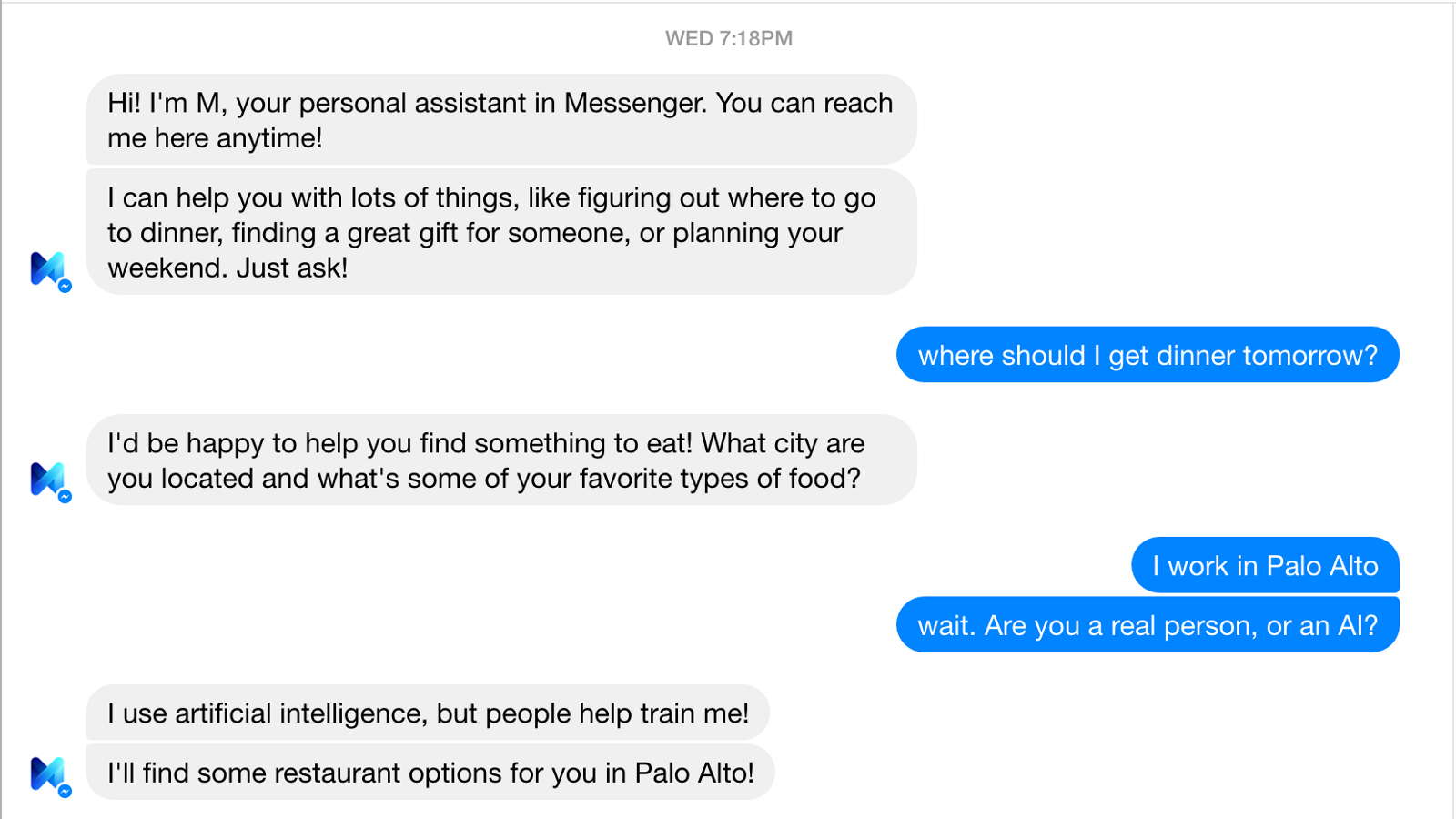Facebook’s M
Facebook recently launched their own “personal assistant” service to compete with the likes of Apple’s Siri, Google’s Now and Microsoft’s Cortana. However, there’s a marked difference between Facebook’s offering and the rest. While Siri, Now and Cortana are all fully-automated artificial intelligences (AI), Facebook’s M was announced to be human-aided, so one software engineer decided to probe the truth of that statement.
The Anti-Turing Test

Some of the foundational concepts of Computer Science were pioneered by Alan Turing, particularly his Turing test, for telling human and AI responses apart. The Turing test involves having a human judge take part in a text-based conversation with two people. The one is a human and the other is an AI, or “chat-bot”, but the judge does not know which is which. The judge has a conversation with both personas, and at the end of the chat has to decide which of the two parties he thinks is the real human. If the AI is chosen, it passes the Turing test.

In this case, the software engineer probing the “humanness” of the service did an “Anti-Turing test”, by having a conversation via Facebook’s Messenger app, with Facebook’s “M”. The system stubbornly refused to admit to not being AI, so the software engineer wanted to try to find out the extent of the human character of M. There were several key traits of M’s replies that seem to prove that it is more than simply “human-aided”. Firstly, the replies to tough questions were flawless. The software engineer deliberately asked questions that required human-level thinking beyond what AI can achieve today.
Also, the responses the software engineer got were often misspelled (incorrect spelling is never seen with a “full AI”) and had grammatical mistakes, also something that could be typical of a human typing hurriedly behind the scenes. The mere fact that replies weren’t instant was also a clue: ask Cortana or Siri something and their replies always appear instantly. The final giveaway was when M was asked to call a phone number (which was the engineer’s business number) and the call appeared to be from a distinctly human voice. This leads to the conclusion that despite M constantly saying it “ [was] AI but humans help train me!”, for now at least (in a bizarre Turing Test twist) humans at Facebook are pretending to be AI.
Do you use any of the assistant services on Android, iOS or Windows? Have you tried the beta of M? Comment with your views on this article in the comments section below, and follow Hyperion Hub developments in the future if you’d like to see more articles like these for the South African market.
Author: Matthew de Neef
Date originally published: 27/11/15


